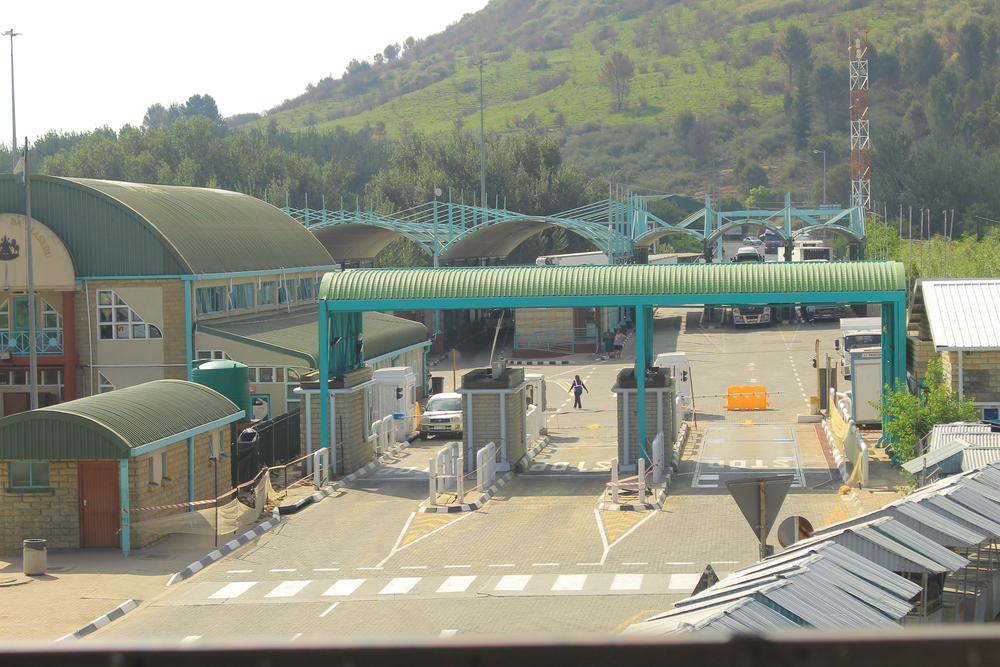NEWS ANALYSIS: Lockdown extension, economic easing through allowing selected enterprises to operate during the second lockdown and future prospects of the COVID-19

Mr Mzimkhulu Sithetho
Managing Director of the Governance Institute for Sustainable Development and Editor-In-Chief of thizkingdom.com

Impact of closure on the economy and life in general
There is no doubt that the three-week lockdown which resumed on 29 March - 21 April 2020 has had a chilling effect on the economy and the general life of citizens. One, it suffocated the economy as there was no active economic activity allowed to open during the lockdown. This meant no income make by businesspeople and no exchange of goods and services for money, which is the basic understanding of an economy. Disallowing exchange of goods and services for money between traders and consumers had an adverse implication of livelihoods and the socio-economic upkeep of people in families. This impact has been even more pronounced for micro, small and medium enterprises that depend largely on the proceeds they receive from selling their wares on the streets.
As a result of their size, a greater proportion of them live on hand-to-mouth, that is their livelihood is based on what they sold in the streets for each day. They have no savings they make, but sell to make a living. Therefore, closing shops means closing income for these categories of businesses. It could be expected that there are families that went to bed with nothing to eat on a given day or couple of days. These incidents were captured by the local media in different places. However, there are good Samaritans who extended a helping hand to those who were hit below the belt by the lockdown. Most of the food Samaritans were businessmen and women who advanced an olive branch to their needy brothers and sisters.
The adversity of the lockdown is definitely that most MSMEs might face a challenge of recovering from the loss of business they experienced in the last three weeks. To start of after easing of the economic activity for MSMEs is not easy. They might have had no option, but to consume their reserves, for those that had them and even the commodities, for those that sold consumables. They definitely need capital injection to start off after the lockdown and entering the second lockdown, but with a small breathing space.
Need to lockdown but open the economy
Lesotho is up to now still COVID-19 free as there is no coronavirus case detected. All the suspected cases have come out negative. However, there is also a lingering threat at the minds of Basotho that without mass tests, there can be no total reliance on the narrative that Lesotho is 100 percent COVID-19 free. This is set to follow on the next week as testing centres and equipment are being set-up by government with the assistance of the private sector. Government expressed the need to continue with the lockdown, which prohibits movement of people and of goods to curb the problem of contact as the virus is contagious.
Key areas and services that are viewed to be high risk and non-essential or essential, but high risk will continue to be closed. Therefore, the government, acting on the advice of the National Emergency Command Centre (NECC) that the lockdown be extended to 05 May 2020. Government took a few factors into account, one that the Coronavirus is spread through contact with other people. Being COVID-19 free now, does not mean being lax and relaxing laws on movement and contact. Two, Lesotho's close neighbour South Africa is largely affected by COVID-19 and has cases skyrocketing by the day. The country now stands at 3, 600 cases with 75 deaths. It experiences a daily increase of the virus cases. Based on this experience, Lesotho has felt vulnerable.
During the lockdown, the government is intent to build the capacity of the quarantine and isolation centres. It will embark on a robust crusade to test suspects with defined symptoms. The government also intends to embark on contact testing, taking a proactive measure to test close contacts.it will further embark on selective testing, which includes populations viewed to be high risk, which will be bound to undergo testing to reduce the spread of the virus. Furthermore, the government will identify hot spots which are potential risky areas and embark on surveillance testing, screening and mobile testing of areas such as the densely populated ones. During this second lockdown, government also intends to ensure acquisition of equipment (personal protective equipment). The government will also use the 14-day extension period to implement the stimulus response packages it promised earlier this month intended to mitigate the impact of the lockdown on various categories of the members of society affected by the lockdown. Meantime, the security sector has been entrusted to implement the lockdown regulations.
There are therefore a few businesses that provide non-essential services that were not allowed to operate in the initial lockdown. They have now been given green light to be back to work. These include clothing shops, particularly those selling baby and toddler clothes. Feeling is that as nature prevails in spite of the pandemic, there are babies which have been born during the lockdown. Babies are critical human beings and their clothes are not a luxury. There has been a call for the opening of baby and toddler dealers. Others are hardware dealers considering needs for homebuilders who need building materials. Falling in the line are the vehicle spares, tyres, repairs and service shops, which were closed before. There has been a call from spare dealers that their clients cried lout for their services to open. This makes sense because as movement is eased a bit, that movement is facilitated by vehicles, which wear and tear. Therefore, services of car dealers are opened.
Smalls-scale building and construction companies are also given green light to operate during the second lockdown. Also, MSMEs have been allowed, but those that sell essential services and goods. That is the reason, street vendors who sell essential goods and services quickly flooded the streets. suffocation of their business in the initial lockdown definitely hit them below the belt. They are a sensitive segment of the private sector because their continued suffocation would spell disaster for the economy of the country. They are indeed the bone-marrow of the economy as they are the ones that ensure exchange of money from one person to another on a daily basis.
Businesses not allowed to open, but public want them
In the meantime, there are businesses that are non-essential, but which member so the public have felt need to be opened. These include liquor stores that sell alcohol beverages. Those who take alcohol have felt government had bitten below the belt by closing liquor stores, complaining about thirst for beer. This call has not been heeded by government as they continue to be closed. The liquor stores are viewed to be risky hot spots as people are exposed to a lot of human contact and congestion. People are free in a liquor store, talk loudly and do a lot of touching of objects and other people. Therefore, it can spell disaster if they were to b e opened. Others are food restaurants which sell all sorts of food including junk food and cooked food. These are also high risk and there is a lot of contagion and exchange of objects. Others are schools, sporting and recreational areas and churches, which also remain risky for they involve a lot of human contact and wanton exchange of objects. Added on the list are areas of exhibition, tradeshows and fairs. However, they remain high in the list of places that the general public wants them opened, but with no success.
Future projections
It still looks gloomy as to when the COVID-19 pandemic will subside or a vaccine to be discovered by medical practitioners. The World health Organisation (WHO) is still floundering on the future of the virus, while its impact on humanity takes toll. There are increased new cases being reported by different countries. Theories have been put forth of the origins, causes and even what might work as a remedy. However, these have not born any fruit to find a lasting remedy for the virus. It might be that the year 2020 has to be declared one of the lost years in the history of humanity. The devastating effects of the pandemic on the global economy is beyond measure. It has had untold sorrow on the human species, some argue, that it is even more than World War I and II and other global risks such as the Global Financial Meltdown of 2008. It is yet to be seen if the world will be able to respond positively to the already deadly virus in the next 3-6 months from now, but as it stands, there is little hope.
Most Read
New coalition government-in-waiting unveiled

The cooling of the political temperatures came with the BAP joining the bandwagon after a season of political agitation and chess games, reflecting political anomalies in the system of political governance of Lesotho:

Close Examination of Lesotho’s Diaspora Management in South Africa in Light of the Recently Inaugurated South Africa-Lesotho Bi-National Commission (BNC)

Related Stories
Government outlines interventions to reduce the impact of the lockdown during this trying time for Basotho

Opinion Vote Polls
Do you think the existing government is going in the right direction to benefit the people of the country?
Subscribe for your daily newsletters
Enter your email to subscribe to our newsletter.

